

Flowers in a.m. (left) The same flowers in p.m. (right)
Impermanence is one of the key teachings of the Buddha. Mindfulness of impermanence is fundamental to Buddhist insight meditation.
"With these flowers I venerate the Buddha,
By this merit may I gain liberation.
As these flowers fade and wither
So will this body be destroyed"
This is a common stanza Buddhists recite mindfully when offering flowers to Buddha. This may be a good way of reflecting on impermanence in your daily practice.
There are two similes I like to share with you from a sutta that helped me a lot to contemplate on this subject:
Simile of the burning oil lamp
Impermanence is one of the key teachings of the Buddha. Mindfulness of impermanence is fundamental to Buddhist insight meditation.
"With these flowers I venerate the Buddha,
By this merit may I gain liberation.
As these flowers fade and wither
So will this body be destroyed"
This is a common stanza Buddhists recite mindfully when offering flowers to Buddha. This may be a good way of reflecting on impermanence in your daily practice.
There are two similes I like to share with you from a sutta that helped me a lot to contemplate on this subject:
Simile of the burning oil lamp

"Just as when the oil in a burning oil lamp is inconstant & subject to change, its wick is inconstant & subject to change, its flame is inconstant & subject to change, its light is inconstant & subject to change. If someone were to say, 'The oil in that burning oil lamp is inconstant & subject to change, its wick is inconstant & subject to change, its flame is inconstant & subject to change, but as for its light, that is constant, everlasting, eternal, & not subject to change': would he be speaking rightly?"
"No, venerable sir. Why is that? Because the oil in that burning oil lamp is inconstant & subject to change, its wick is inconstant & subject to change, its flame is inconstant & subject to change, so how much more should its light be inconstant & subject to change."
Simile of the tree

"Just as when the root of a great, standing tree — possessed of heartwood — is inconstant & subject to change, its trunk is inconstant & subject to change, its branches & foliage are inconstant & subject to change, its shadow is inconstant & subject to change. If someone were to say, 'The root of that great, standing tree — possessed of heartwood — is inconstant & subject to change, its trunk is inconstant & subject to change, its branches & foliage are inconstant & subject to change, but as for its shadow, that is constant, everlasting, eternal, & not subject to change': would he be speaking rightly?"
"No, venerable sir. Why is that? Because the root of that great, standing tree — possessed of heartwood — is inconstant & subject to change, its trunk is inconstant & subject to change, its branches & foliage are inconstant & subject to change, so how much more should its shadow be inconstant & subject to change."
"In the same way, sisters, if someone were to say, 'My six external media are inconstant, but what I experience based on the six internal media — pleasure, pain, or neither pleasure nor pain — that is constant, everlasting, eternal, & not subject to change': would he be speaking rightly?"
"No, venerable sir. Why is that? Because each feeling arises dependent on its corresponding condition. With the cessation of its corresponding condition, it ceases."







































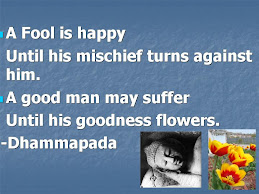


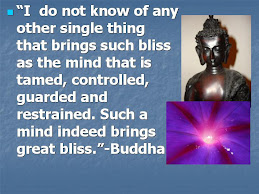
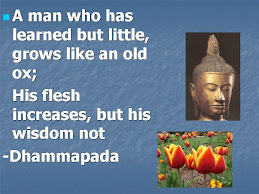
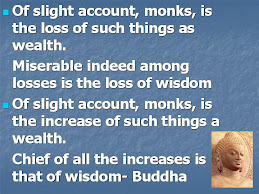











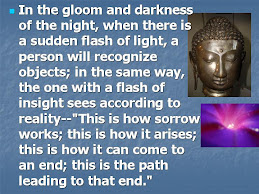
















No comments:
Post a Comment